She got home but was completely out of breath, without coach
or footmen, and wearing her nasty old clothes, having nothing left of all her finery but one of the little glass slippers, the match of the one that she had dropped. The guards at the palace gate
were asked if they had seen the princess leave, but they said they had seen no one go out but a young girl, very poorly dressed, and who looked more like a poor peasant than a lady.
When the two sisters returned from the ball Cinderella asked them if they had had a pleasant time and if the fine lady had been there. They told her yes, but that she hurried away immediately
when the clock struck 12, and in so much of a hurry that she dropped one of her little glass slippers, the prettiest in the world, and which the king’s son had picked up. He had done nothing
but look at it for the rest of the evening, and he most certainly was in love with the beautiful person who owned the little slipper.
What they said was true, for a few days later the king’s son had it proclaimed that he would marry the lady whose foot this slipper would fit. His men began to try the slipper on the
princesses, then the duchesses and all the court ladies, but in vain. It was brought to Cinderella’s two sisters, who did all they could to thrust their feet into the slipper, but they could
not do it.
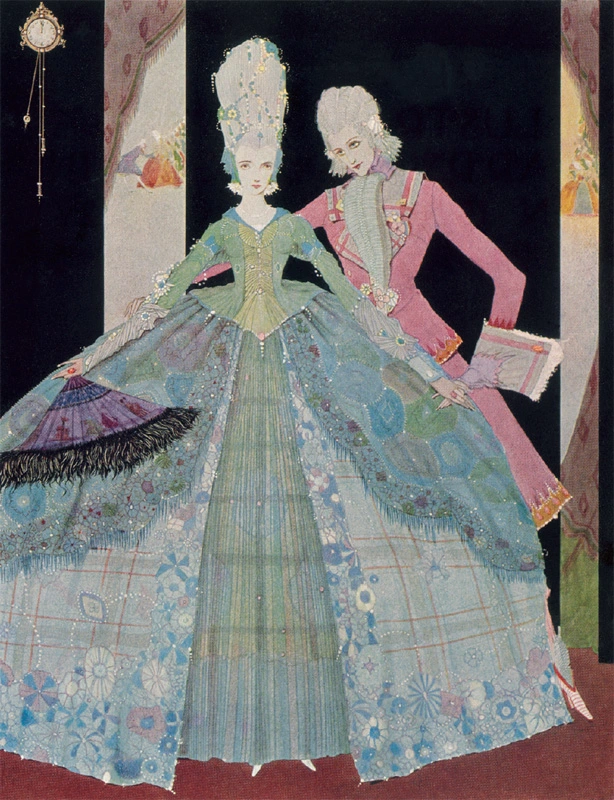
“CINDERELLA AND HER PRINCE”
Cinderella, who saw all this, and knew her slipper, said to them, laughing, “Let me see if it will fit me.”
Her sisters burst out laughing and began to tease her. The gentleman who had been sent to try the slipper looked earnestly at Cinderella, and finding her very beautiful, said it was only fair
that she try it, and that he had orders to let everyone try it on. He invited Cinderella to sit down and, putting the slipper to her foot, he found it went on very easily, and fitted her as if it
had been made of wax. Her sisters were absolutely amazed, but even more so when Cinderella pulled the other slipper out of her pocket and put it on her foot. Then in came her godmother, who touched
Cinderella’s clothes with her wand, making them richer and more magnificent than any of those she had worn before.
And now her two sisters realised that she was that fine, beautiful lady whom they had seen at the ball. They threw themselves at her feet to beg her pardon for everything they had done to her.
Cinderella raised them up and as she embraced them she said that she forgave them with all her heart and asked them always to love her.
She was brought to the young prince, dressed as she was. He thought her more charming than ever and married her a few days later.
Cinderella, who was no less good than she was beautiful, brought her sisters to live in the palace, and that very same day made matches for them with two great lords of the court.
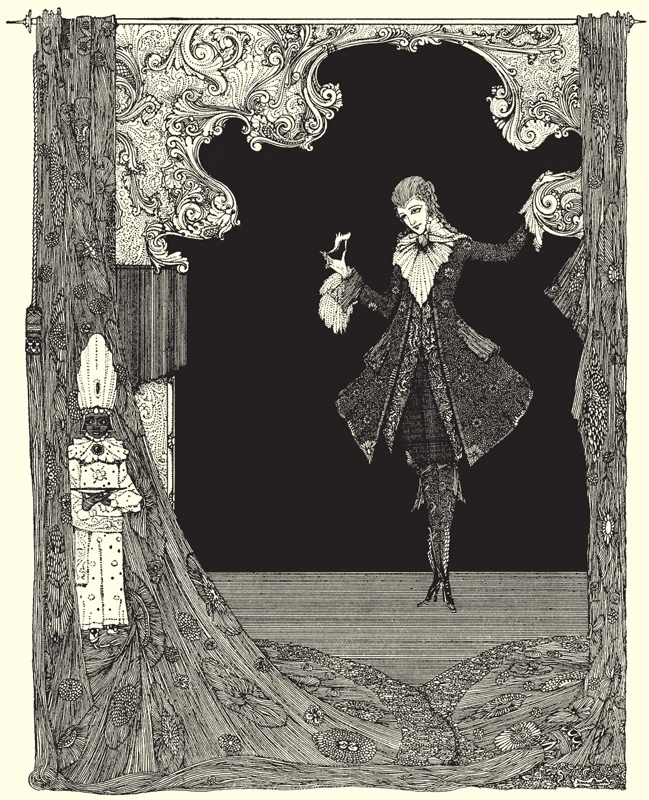
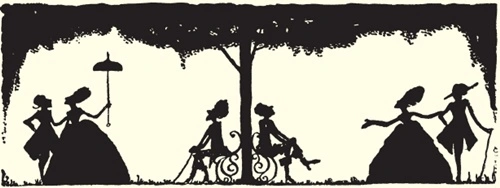
THE MORAL
Beauty’s to the sex a treasure,
Still admired beyond all measure,
And never yet was any known,
By still admiring, weary grown.
But that rare quality call’d grace,
Exceeds, by far, a handsome face;
Its lasting charms surpass the other,
And this rich gift her kind godmother
Bestow’d on Cinderella fair,
Whom she instructed with such care.
She gave to her such graceful mien,
That she, thereby, became a queen.
For thus (may ever truth prevail)
We draw our moral from this tale.
This quality, fair ladies, know
Prevails much more (you’ll find it so)
T’engage and captivate a heart,
Than a fine head dress’d up with art.
The fairies’ gift of greatest worth
Is grace of bearing, not high birth;
Without this gift we’ll miss the prize;
Possession gives us wings to rise.
ANOTHER
A great advantage ’tis, no doubt, to man
To have wit, courage, birth, good sense, and brain,
And other such-like qualities, which we
Receiv’d from heaven’s kind hand, and destiny.
But none of these rich graces from above,
To your advancement in the world will prove
If godmothers and sires you disobey,
Or ’gainst their strict advice too long you stay.
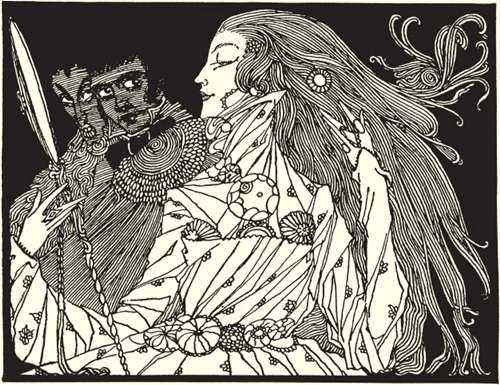
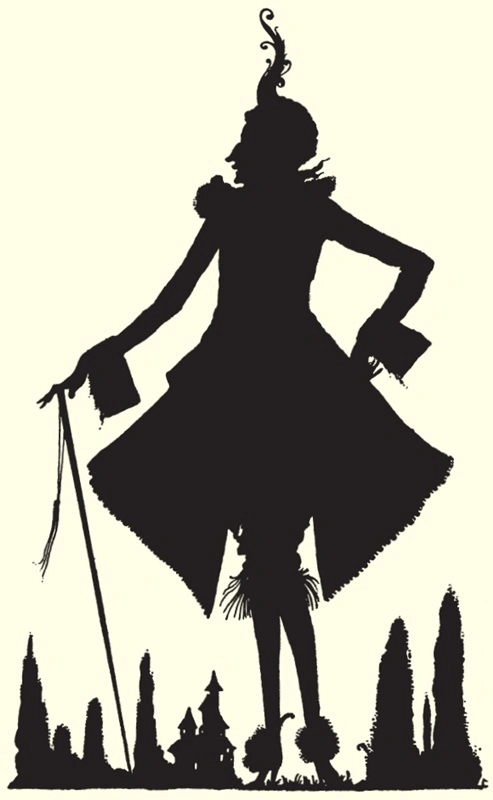
RIQUET WITH THE TUFT
Once upon a time there was a queen, who gave birth to a son who was so ugly that people wondered if he was really human. A fairy present at his
birth said that he would be very lovable, despite his appearance, since he would be endowed with great cleverness and wit. She even added that he would have the power, by virtue of a gift she had
just given him, to bestow on the person he loved as much wit and cleverness as he pleased. All this was some comfort to the queen, who was very unhappy that she had brought such an ugly creature
into the world.
No sooner had this child begun to speak than he said a thousand amusing things, and he had a way with him in everything he did that charmed everyone. I forgot to tell you that he came into the
world with a little tuft of hair on his head, which made them call him Riquet with the Tuft, for Riquet was the family name.
Seven or eight years later the queen of a neighbouring kingdom gave birth to twin girls. The firstborn of these was beautiful beyond compare, which made the queen so deliriously happy that those
present were afraid that she would become ill. The same fairy who had assisted at the birth of little Riquet with the Tuft was here also. To balance the queen’s gladness she declared that
this little princess would have no wit at all, but would be as stupid as she was pretty. The queen was extremely mortified, but a few moments later she had far more reason to be unhappy, for when
the second daughter was born it was immediately apparent that she was very ugly.
“Do not be too concerned, Madam,” said the fairy. “Your daughter will have so much wit that her lack of beauty will hardly be noticed.”
“May God grant it,” replied the queen. “But is there no way to make the eldest, who is so pretty, have just a little wit?”
“I can do nothing for her with regard to wit,” answered the fairy, “but everything with regard to beauty; and as there is nothing I wouldn’t do to make you happy, I give
her as a gift the power to make handsome the person she likes best.”
As these princesses grew up, their perfections grew with them. All the talk was of the beauty of the elder and the wit of the younger. It is also true that their effects increased as they grew
older – the younger became uglier and uglier, and every day the elder grew more stupid. She either gave no answer at all when she was asked a question, or she said something very silly. She
was also extremely clumsy, and could not place four pieces of china on the mantelpiece without breaking one of them, or drink a glass of water without spilling some of it on her clothes.
Although beauty is a great advantage in young people, here the younger sister was the winner, almost always when in company with the elder. People would, indeed, go first to Beauty to look at
and admire her, but would soon turn to Wit to hear countless entertaining anecdotes, and it was amazing to observe that, in less than a quarter of an hour’s time, the elder was alone, while
everyone was crowded around the younger. The elder, although she was extremely dim, could not help noticing it, and would have given all her beauty to have just half the wit of her sister. The
queen, tactful as she was, could not help reproaching her several times, which made the poor princess want to die.
One day, when she went into the wood to bemoan her misfortune, she saw, coming towards her, a little man, very ugly but magnificently dressed. This was the young Prince Riquet with the Tuft, who
had fallen in love with the princess on seeing her portrait, many copies of which had been sent all over the world.
1 comment